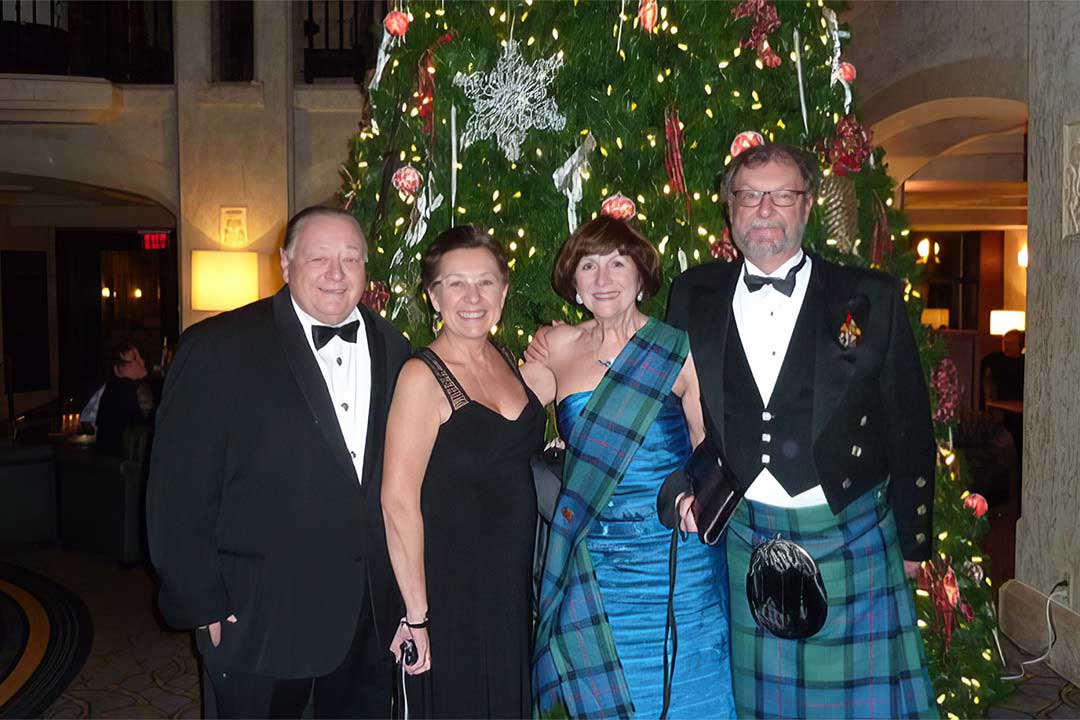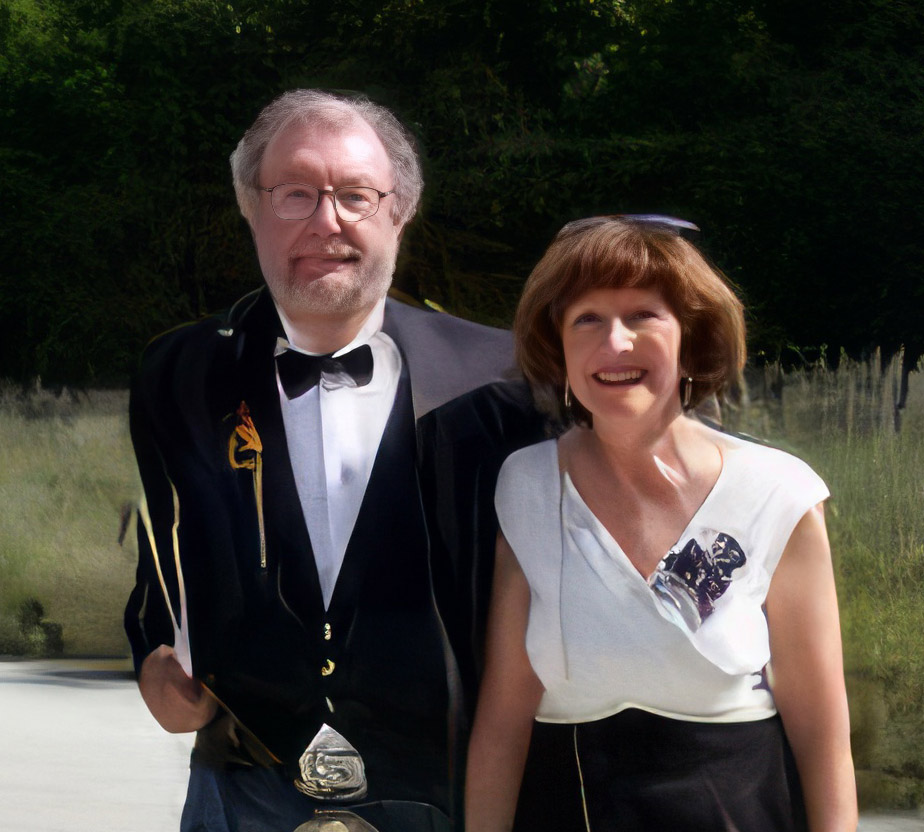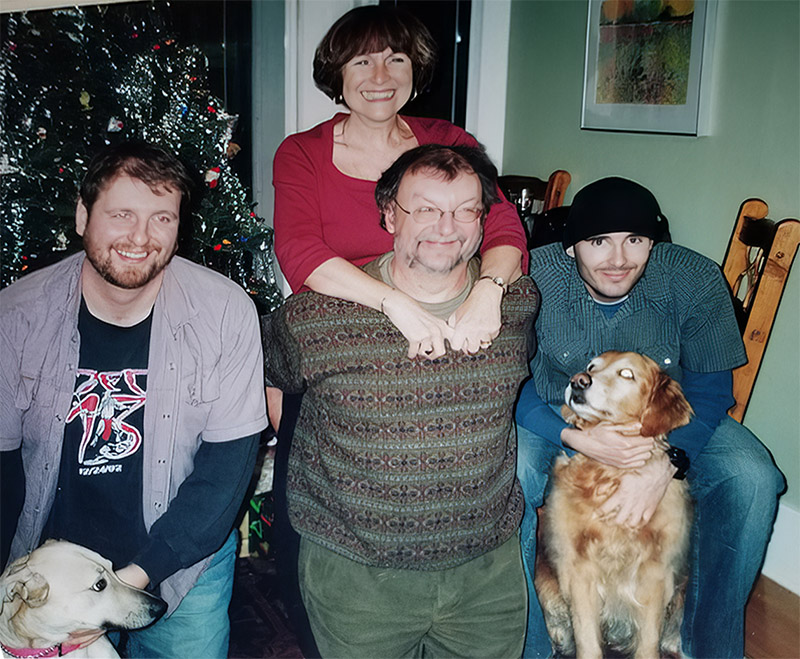
USask scholars create a legacy
Following the passing of Professor Emeritus Len Findlay (DLitt’11), Professor Emerita Isobel Findlay (MA’80) is honouring her husband’s memory through two funds that will support graduate students and community research as part of USask's Be What the World Needs campaign.
By Patricia Dawn RobertsonIn 1974, Dr. Leonard “Len” Murray Findlay (DLitt’11) brought his young family (including their new first born) — and his Scottish Enlightenment values — to the University of Saskatchewan’s (USask) Department of English, in the College of Arts and Science.
USask welcomed the Findlay family into the academic community in a fateful hiring decision that continues to pay dividends.
Len Findlay was born in Aberdeen, Scotland, on Dec. 14, 1944. As a young student, he embraced the Scottish Enlightenment’s commitment to critical intellectual inquiry and artistic expression.
“Len and I did our first degrees at Aberdeen,” said Dr. Isobel Findlay (MA’80), professor emerita, Department of Management and Marketing in the Edwards School of Business. “We always appreciated that Scottish education combining with our Canadian careers and learning.”

A gifted undergraduate student, Len Findlay was awarded the Seafield gold medal at the University of Aberdeen. When he completed his doctoral studies in Victorian Literature at Jesus College, Oxford, Findlay received a congratulatory Viva.
Findlay delivered on his potential and later earned awards and recognitions, including serving as senior fellow at Metropolitan University’s Centre for Free Expression and as a member of the board of the Harry Crowe Foundation for Academic Freedom.
“Dare to know” is the clarion call disseminated worldwide by pioneering intellectuals — like the Findlays — proud members of the Scottish diaspora.
Saskatoon proved an ideal locale for Len and Isobel Findlay to teach, research, and build community. In 1995, the couple co-edited Realizing Community: Multidisciplinary Perspectives.
Len Findlay received two University of Saskatchewan Students’ Union (USSU) teaching awards, directed the Humanities Research Unit from its inception to end, and was past president of Academy One at the Royal Society of Canada. Away from home, Len was a visiting research fellow at Western University’s Centre for Theory and Criticism and served as the Frye Professor at the University of Toronto.
The busy academic also chaired the Academic Freedom and Tenure Committee with the Canadian Association of University Teachers (CAUT). The couple gifted an endowment to CAUT, a national award, given annually, for those who make a difference in critical race theory, decolonization, and academic freedom.
The Findlays also co-founded the innovative Indigenous Humanities Group at USask led by activist academic and lawyer Sa’ke’j Henderson and Marie Battiste, a Mi’kmaq educator, professor and scholar, along with Lynne Bell, professor of art history.

“We talked before Len passed and we felt it was important to have some honouring of his legacy in gratitude too for a privileged career,” said Isobel Findlay.
On May 25, 2023, Len passed leaving behind his wife and collaborator, two devoted sons, a close-knit, extended family, and a diverse set of academic and community colleagues.
Len Findlay’s visionary legacy will not stop after his death. Two generous endowments will ensure the good work the Findlays conducted together continues with the next generation.
“I was left to define the details,” explains Isobel Findlay, who remains very active in the academic world and broader community as co-director of the Community-University Institute for Social Research (CUISR).
Isobel Findlay cited the vital importance of supporting the next generation of USask scholars. The couple has endowed The Isobel and Len Findlay Travel Award for the Canadian Centre for the Study of Co-operatives (CCSC). The $30,000 donation will provide financial travel support to graduate students studying in the area of co-operatives or the broader social economy.
“One of the things Len and I really enjoyed was travelling to national and international conferences and presenting together. And we thought, ‘You know, we have the privilege to do that. Should students not have the same access?’” she said.
The dynamic couple wanted students to enjoy the same opportunities to present their work, network, and gain exposure to other people and ideas-- and to see how things work elsewhere.
“Knowing that there are limited resources at the university and there are still gaps in those resources, that was an important consideration. We were both associated — and I still am — with the CSCC. That was one place where we learned so much and worked together.”
It’s a generative space that both Findlays viewed as a critical site of learning.
“Co-ops are about economic democracy and social democracy. They are about inclusion, about people having decision-making power. The power isn’t taken away elsewhere. The profits don’t go elsewhere. They stay in the community and support the community. That’s an important dimension of co-ops,” Isobel Findlay added.
The second gift to the University of Saskatchewan is The Isobel and Len Findlay Endowment Fund for Social Research. It provides $30,000 to support the priority financial needs of CUISR.
“CUISR’s mandate is to bring community and university together in partnership to do rigorous and relevant research that will improve quality of life in communities,” said Isobel Findlay.
“Education is critical,” she added. “My husband was courted by many universities, but he opted to stay here in Saskatchewan. He had a fine mind, and he had a conscience. Len found Saskatchewan fertile and nourishing ground.”
Len Findlay’s absolute loyalty and commitment to his adopted home also rewarded the scholar with a rich, full life. In his leisure time, Len coached his young sons’ soccer teams, volunteered as a Scout leader, and relished fishing with colleagues and friends.
For the Findlay family, the choice to grow roots in Saskatchewan proved a marvelous fit for these proud Canadians.
“The colleagues we found here and the deep friendships we made turned Saskatchewan into our home,” said Isobel Findlay.
Article originally published at https://news.usask.ca
Together we will support and inspire students to succeed. We invite you to join by supporting current and future students' needs at USask.

